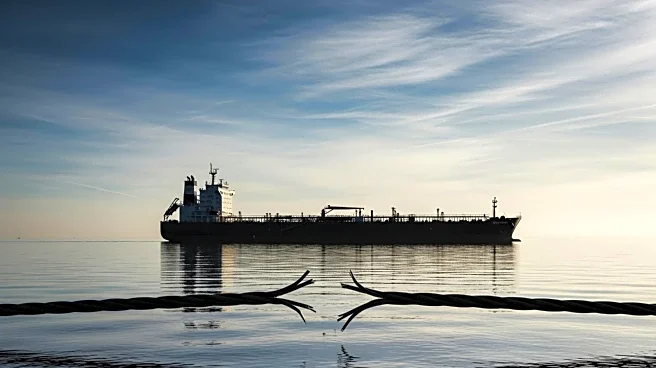What is the story about?
What's Happening?
A Helsinki court has ruled that it lacks jurisdiction in the case involving the Eagle S oil tanker, whose crew was accused by the Finnish government of damaging subsea cables. The court's decision is based on the fact that the alleged crimes occurred before the ship entered Finnish territorial waters. The Eagle S, flagged in the Cook Islands, is suspected to be part of Russia's 'shadow fleet' of sanctions-dodging ships. As a result of the ruling, the Finnish state may be required to cover the defendants' legal fees, estimated at around €200,000 (US$234,000). This case highlights the complexities of international maritime law and the challenges in prosecuting alleged crimes involving vessels operating outside territorial waters.
Why It's Important?
The court's decision has broader implications for international connectivity and maritime law enforcement. Subsea cables are critical infrastructure for global communications, and their protection is vital for maintaining international connectivity. The ruling may influence future legal approaches to similar cases, particularly those involving vessels suspected of evading sanctions. The financial burden on the Finnish state to cover legal fees underscores the challenges governments face in pursuing legal action against foreign entities. This case may prompt discussions on international cooperation and legal frameworks to better address maritime crimes and protect critical infrastructure.















